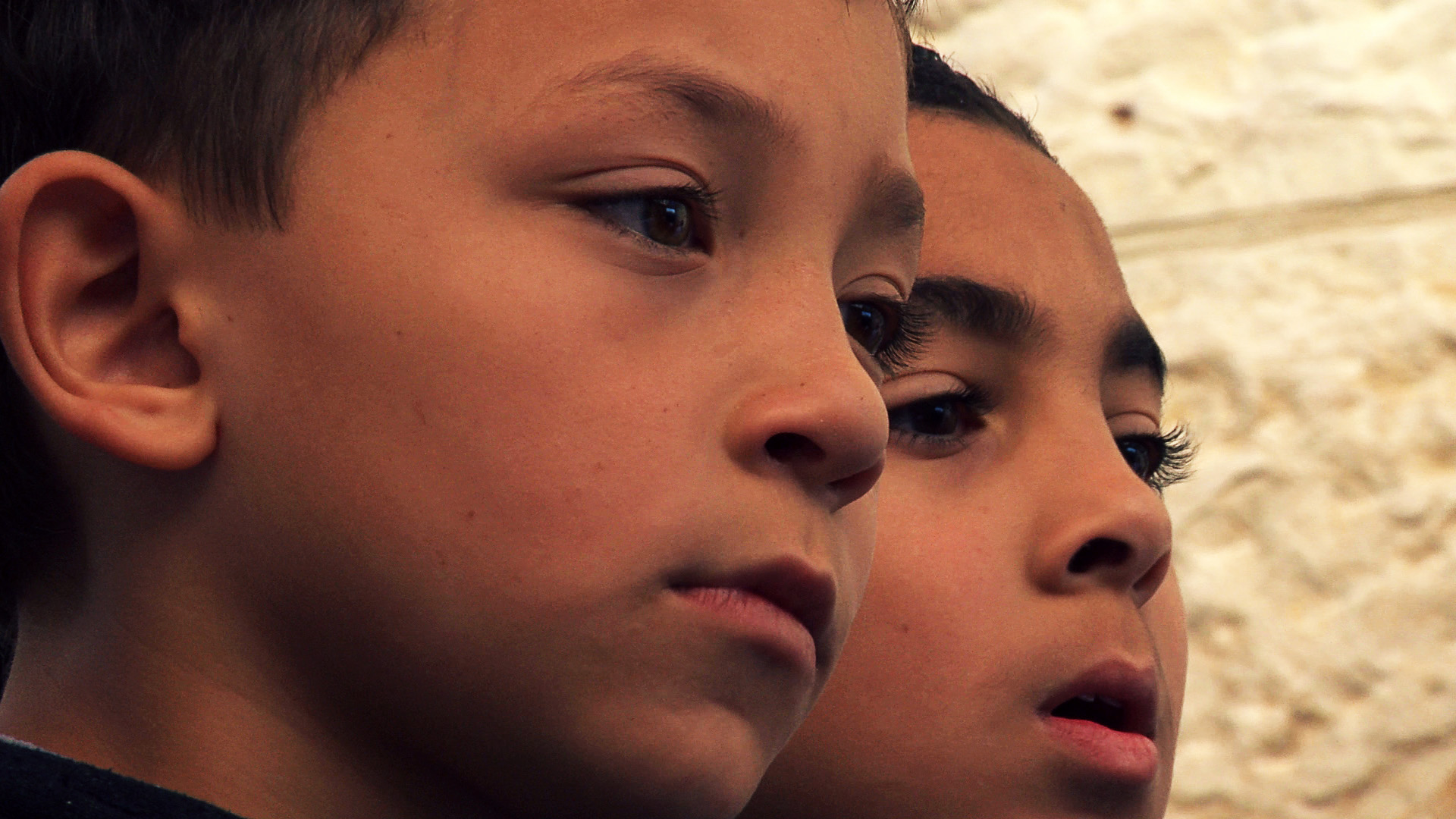
Director: Danae Elon; Documentary; Canada/Israel 2015, 87 min.
Filmmaker Danae Elon offers a straightforward and very honest film diary of the three years following her return to Jerusalem. Her father Amos Elon was a writer and a fierce critic of Israel’s occupation of Palestine who advised her not to return to “this nation of thieves”, before his death in 2009. And Elon’s is a heart-breaking story of personal disappointment amid the day-to-day violence in Israel.
A child of the ’70s, Danae Elon grew up with parents who actively protested against Israel’s ‘Apartheid’ policies and the permanent violence against Palestinians. After living most of her adult life in the USA, her main motive for returning to Jerusalem was to relive her childhood, because “Jerusalem was the only place I call home”. With her two sons Tristan and Andrei – a third child, Amos, was born just after the arrival in Jerusalem – and husband Philip Touitou, a French-Algerian Jew, Danae tried in a way to recreate her own childhood, taking her children to rallies against new Jewish settlements and enrolling her oldest son Tristan in Jerusalem’s only school bi-lingual school for Arabs and Jews.
Whilst teaching her children to see Palestinians as their equals, she had not reckoned with the openly violent attitude of her fellow Israelis towards the Palestinians in the capital. At one point an enraged Israeli shouts at Danae and her son during a demonstration against an evection of an Arab family: “Your ancestors must have helped the Nazis, since you are helping the Arabs. Your father was a Kapo [in the Camps] !”. Even at home the atmosphere changed from he happy time of their arrival: Tristan exclaims “Mummy comes from here, she understands. Dad shouldn’t be here”. The oldest sons are proud “Mummy was a soldier” in the Israeli Army. Naturally, Philip, who has trouble finding a job as a photographer, feels alienated and fears for the future of their children when asking his wife: “You make the children feel different from others, they have different values. But is it good for them?” Philip feels even more isolated than he did growing up as an Arab in Paris. And he yearns to live “with normal people, without all the political barriers erected between Arabs and Jews”. Danae too starts questioning the future of her sons: “Will they be hated as members of the Peace Movement, or will they start to hate?”
Everywhere Danae starts to see contradictions when arguing with fellow Israelis: “The whole myth of the founding of the State of Israel, where the settlers build the country from ‘barren land’, whilst the reality was, that the best agricultural part of the country was taken from 700 000 Palestinians, who were displaced”. Things come to a head for Danae on “Memorial Day for Jewish Soldiers”, the only day, when the students in Tristan’s school are separated. The open contradictions of this “celebration” lead her to conclude that she wanted to bring the boys up where she was a child. “Perhaps I need to become a person away from my childhood. The only home for my children is their family”.
A tearful farewell with Tristan’s best friend, a Palestinian boy, notwithstanding, P S JERUSALEM shows that it is impossible for Danae, or anybody else, to bring up her children in a tolerant way given the violence and hatred between Jews and Arabs growing with every new Jewish settlement and every eviction of Arabs from their family home. Danae’s father, an emigrant from Austria, saw the roots of this tragedy as a journalist during the War of Independence in 1948 – his daughter had, rightly, tried to make a difference in this unequal struggle between the Have and Have-Nots. In the end, Danae did not want to pay the penalty of “a divided family as a price for being a Jew in Israel”.
Made on a shoestring budget, and no worse for it, the director was her own DOP, in what is by far the most impressive document of the seemingly unavoidable conflict between Israeli and Palestinians: Violence has become the norm, and minorities on both sides, fight a losing battle for reconciliation. Danae Elon’s truthful, unflinching account of her struggles is a milestone of personal/political filmmaking. Dedicated to her mother, who still lives and fights for reconciliation in Jerusalem, this documentary is a tribute to both her parents. AS
SCREENING AT BERTHA DOCHOUSE FROM 17 FEBRUARY 2017